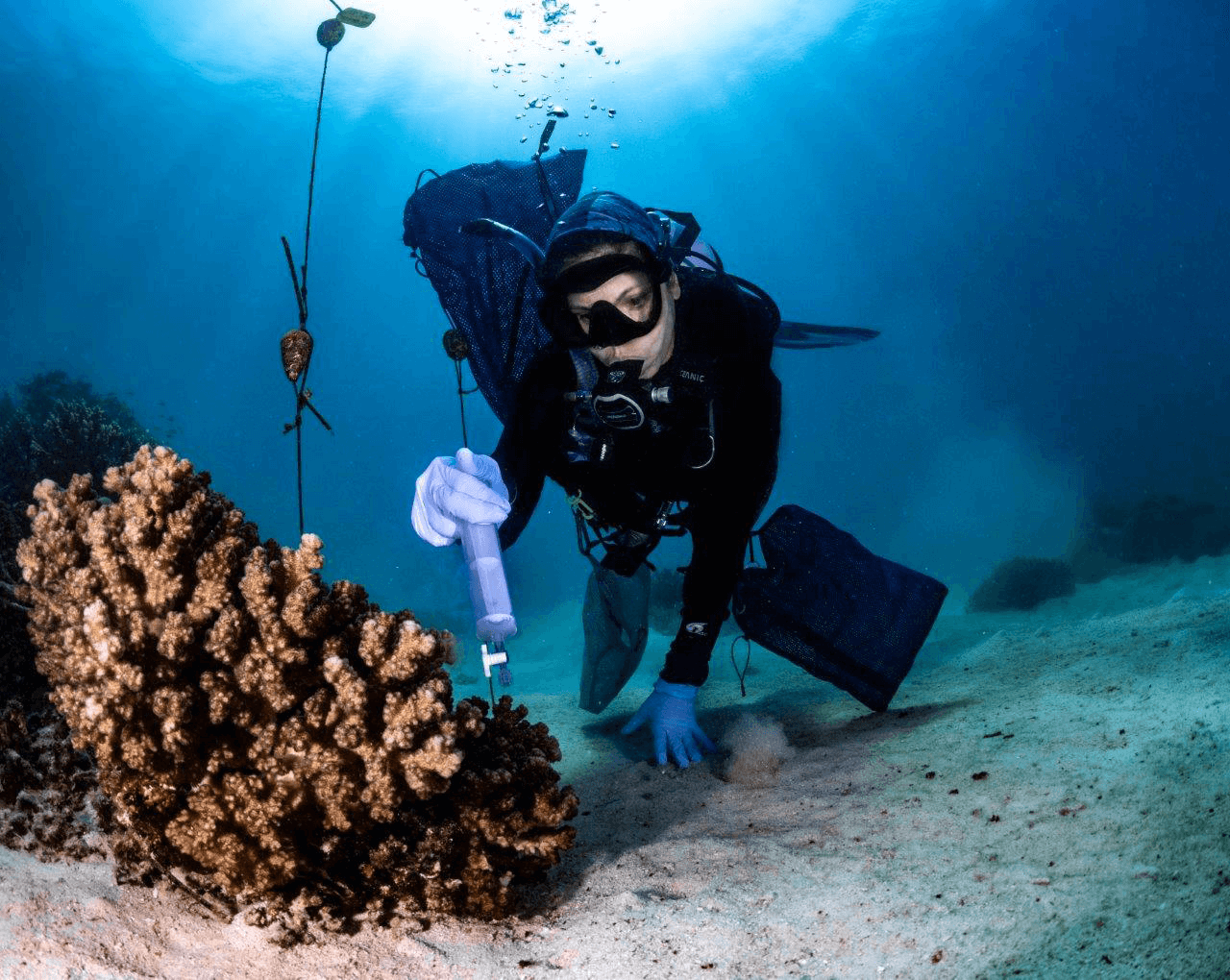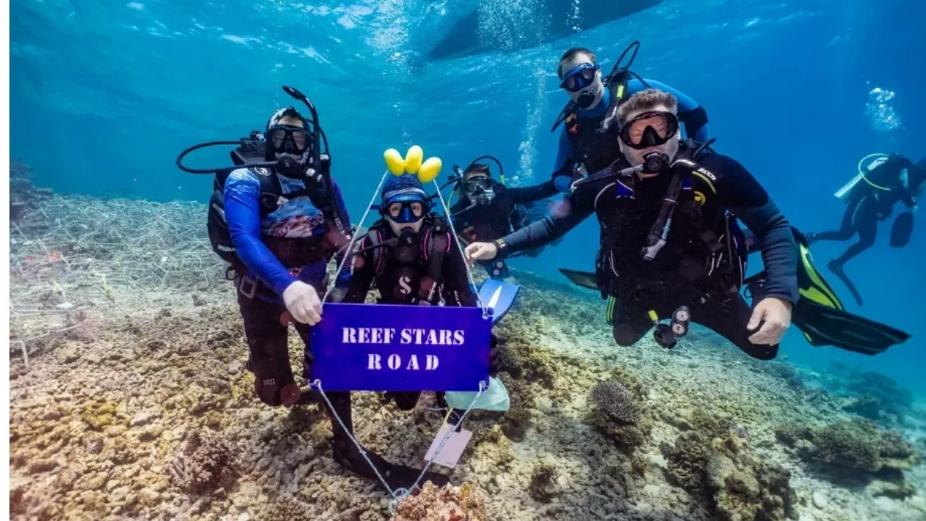
Trialling Coral Probiotics
As more coral reefs around the world suffer from thermal-induced bleaching and mass mortality, the use of coral probiotics has become a new approach to equip restored coral reefs with increased resilience in the face of environmental stressors.
“Whether we’re talking about the planet or our own microbiomes, we all need to try to be more symbiotic and less pathogenic. And I believe we can.”
~ Dr. Raquel Peixoto
Red Sea Reef Stars
In March 2024, Mars Sustainable Solutions [MSS] ventured to the Middle East, introducing the MARRS method for the first time to the reefs of Saudi Arabia.
Partnering with the Marine Microbiomes Laboratory from King Abdullah University of Science and Technology (KAUST) in close collaboration with Professor Raquel Pexioto, and Professor David Suggett, chief scientist for the KAUST Coral Restoration Initiative (KCRI), the restoration team set out to install the first Reef Stars in the Red Sea- a region of immense importance for the future of coral reefs. In another first, the team piloted the use of coral probiotics, in conjunction with Reef Stars, to enhance the thermal resilience of restored corals.
During the visit, three members of the KAUST team were trained in Reef Star fabrication and installation. As part of their training, the team set out to install 88 Reef Stars on a coral rubble slope within the RSRC Coral Probiotic Village during their first restoration build and a further 62 reef stars on build two. In total, 150 Reef Stars were deployed across these sites, outplanting over 2,250 coral fragments, taken from local coral nurseries or previously identified parental colonies.

Restoration Village
Coral Probiotics
Of the >2,000 coral fragments outplanted, 90 of these were involved in an additional study conducted by the KAUST team. These 90 coral fragments were treated with coral probiotics that have been shown to provide coral with a greater ability to resist thermal stress. The use of coral probiotics is a relatively new approach to equip restored coral reefs with increased resilience, so we’re excited to watch this space as we continue to develop the coral restoration toolbox.
"The coral village is a perfect place for innovative research to be developed towards protecting coral reefs. It has been closely monitored and it presents all the natural conditions necessary for such researches," said Dr Raquel Peixoto. "I'm very optimistic that with the KAUST Coral Probiotics village established and all the bright minds working together, we'd actually develop the solutions that will make a difference in the real world."
Mars in collaboration with KAUST

